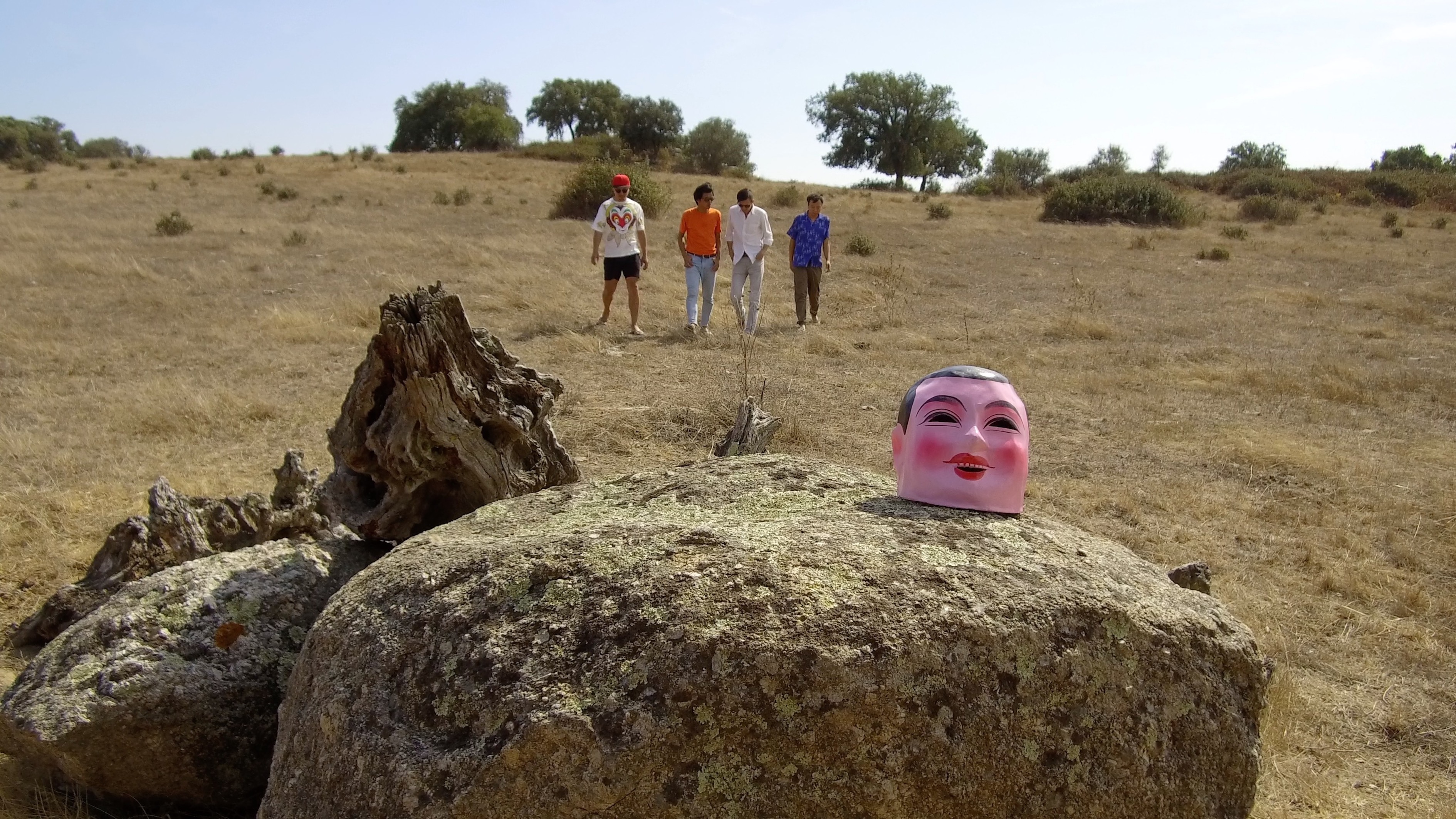
海风吹到哪里 哪里就有人在唱歌
About the film «Wu Tiao Ren - Sound of Sea Breeze» by Luís Brás and Manuel Correia da Silva.
This Is My City Festival / None Of Your Business, 2022.
The mapping of Wu Tiao Ren's journey to Portugal begins in Porto, on August 31, 2019, at 'Casa da Música'. They then travel to the ‘Salão Brasil’ in Coimbra, on September 5th. The next day, they head to the 'Music Box' in Lisbon. One more day they go to the 'Atlas' of Leiria to finally end up in that symbolic, abstract space, much closer than far away, in Montemor-o-Novo, the 'Oficinas do Convento'. It's the 8th of September.
Someone asks Renke: “What do you see for the future?”. He replies between laughs “I think the future is nothing. The future is an imagination.” Then he concentrates and, taking himself seriously, replies that the future is to bring music from China to Portugal. Reach Europe, the United States, the world. Wu Tiao Ren's music is for everyone.
We, watching this band's Portuguese tour coming from the wide surroundings of Guangzhou, agree. But we are also surprised. And they also seem to find themselves strange, sitting around a table, a bar, wandering through the cities or along the most western beaches. And we, listeners of the imperceptible eastern language, were attentive to the curious, maybe suspicious, maybe skeptical steps of the Wu Tiao Ren. The raw sound of his soft-punk songs (let's call them that way for simplicity of writing), abandoned on the simple stage of the Montemor-o-Novo convent. Curious. Close by, the journey of António Mau-Tempo and his family took place, a political, central and emotional part of «Levantado do Chão» by José Saramago (1980), a book that, due to its clarifying language, modified the perception imagery of Portuguese realism.
Does the filming of the journey of these hard-folk-spoken-word compositions (let's simplify in redundancy, once again) also change the sound perception that the spectator has of the Chinese language?
Says producer Zhang (Modern Sky): “(In art) if we stand side by side with time, we systematically lose one of its sides. We should stay at the back and watch it as a whole.” And the great advantage of this film is, exactly, to place face-to-face, expectant or astonished, the geographic space and temporal space of the two entities – the laborious Chinese signifier and the curious Portuguese (or Western) observer. Roland Barthes talks about the slow and meticulous Chinese writing and suggests that, initially, it developed to try to connect with the gods and, only later, secularly, did it serve to communicate between men, later stopped by the emperor to guarantee him the desired distance from the people.
However, the lyrics of the songs that we hear throughout the film do not try to reach the voice of the gods. They don't even have the pretension of mirroring a new language about the realistic conscience that emanates from a changing society, as did Saramago. They probably simply want to express the vital fantasy, the grateful rage of youth.
Here we see four traveling musicians: Amao (guitar and vocals); Neon (double bass and electric bass); Long River (percussion); and Renke (accordion, guitar and vocals). Strangers in a common aesthetic space, united in time that they observe at 360º, building the possibility of a future dream or the dreamlike but real trajectory of a collective desire. «Wondering About In My Dream Again Last Night / Yesterday Night Dreamed That Walked Alone».
João Eduardo Ferreira, December 2022


